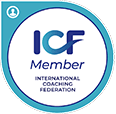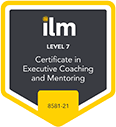Leadership is of undisputable importance and support for leaders and executives is crucial since they impact so many lives. But “the higher people fly in an organization, the less contact they have with the work on the ground; thus, the more detached they can become from the people they serve, the more a trusted and objective executive coach “who can be at least a good sounding board, helps a leader decisively” (Klein, 1999). There is no shortage of leadership models for executive coaching and the challenge for the effective coach is to identify how to select and to use the best ones to fit a unique individual. “Leaders of the future need to have values and vision and to be authentic and agile and internally aligned; add awareness and responsibility, self-belief, and a good measure of emotional intelligence” it represents my own vision of a perfect leader (Whitmore, 2017). It is true to my coaching practice to believe in my clients and their potential for growth. Coaching can be used to develop key leadership capabilities and ignite people thinking and I’m well positioned to do that for my coaching clients.
Kouzes and Posner (2017) developed a comprehensive list of practices and commitments of exemplary leadership linked to values, vision, collaboration, trust, relationships, and developing people amongst others. Many of these capabilities confirm importance of leader’s emotional connectedness to others – authenticity, credibility, and trustworthiness which closely resonate with my own values. As a coach I believe that “effective leaders empower others, not simply themselves”. This helps develop more empowered, effective and self-fulfilled individuals, teams and organisations. With meaning and purpose. In turn this contributes to more fulfilled and happier societies. For me as a coach this contribution to better societies is fundamentally motivating force.
One big focus of my coaching practice is on women in leadership. This is particularly important to me as a coach because in my years of organisational development and coaching career I saw too many women suffer from cultural bias, injustice and inequality of opportunities which in turn lowered their self-esteem and confidence to aspire to leadership roles. I am passionate about using coaching to utilize the potential of female leaders and build their confidence in this area.

A trusted and objective executive coach “who can be at least a good sounding board, helps a leader decisively” – Klein.
In my practice I lean towards authentic and humble leadership because I strongly believe these are the leaders who can contribute greatly to developing better teams and societies. I believe that relationship between leadership, character, and values must be stronger and number of humble, team building, communicative and authentic leaders (Martin, 2003) should grow. Trust in leadership inspires common vision and facilitates implementation of organisational goas. Therefore, one of key gaols for my executive coaching practice is to help organizations become great by supporting development of authentic leaders whose “internal values and external behaviour are aligned. And this integrity can be better achieved when “organizational goals are aligned with leader’s own personal values”.“Striving for fairness, respecting others, humility, and concern for the greater good” are critical for leadership. And the level of awareness is key for authentic leadership and most effective in “tackling complex challenges”.

Most useful in my coaching practice is supporting leaders become more self-aware and enable their Time to Think (Klein, 1999). I also favour a model of authentic leadership which is a “tool for making sense of the possible unconscious dynamics that limit a coachee’s ability to change” in relation to their shifting challenges and contexts. “Authentic leadership depends on the capacity for reflective awareness, and reflective awareness in turn depends on the coachee’s state of mind”. Therefore, in my practice, I encourage clients to practice mindfulness to help them balance their mind, calm them and “help sustain their reflective awareness in challenging” moments at work. I also like to integrate mindfulness into coaching practice.
Leadership literature and research is vast, complex and difficult to grasp and constantly growing. Therefore, it is important that the executive coaches stay up to date and choose what best works in their practice with consideration for differences between clients as unique individuals and their different professional and personal contexts. I draw on a range of useful models and methods and approaches depending on a client, context, to fit with the learning style and personality of the coachee and be flexible to adapt to maximize leadership development.
Written by Patrycja Orzeszyna © 2019 ZenCoaching.eu. All rights reserved.
To find out more about ZenCoaching practice and schedule an exploratory coaching session with me please follow the link.





